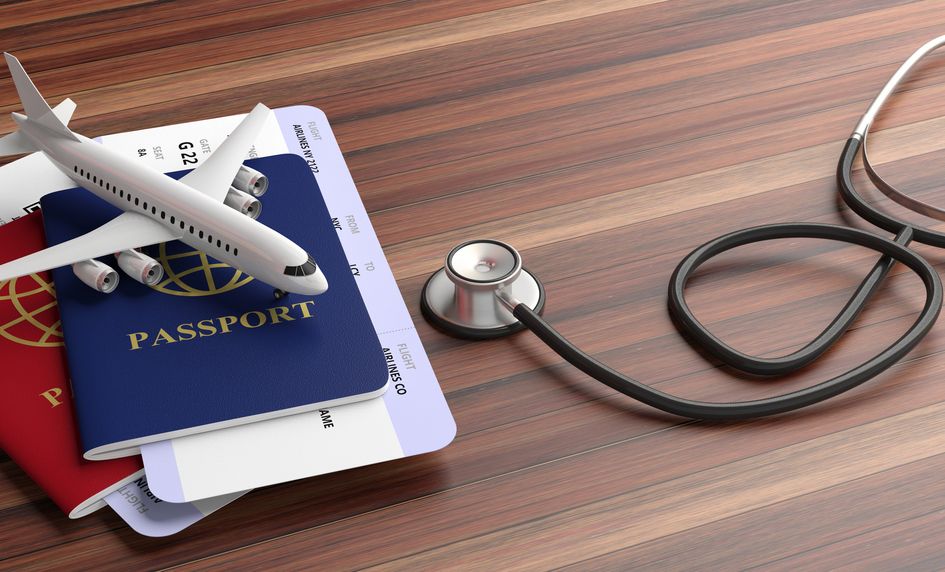Travelling is one of the most common things that are found in almost every person’s bucket list. Especially, people with specific diseases will want to squeeze on a good trip before a long period of treatment procedure starts. However, there are many things that you need to keep in mind before an air trip. Among the various types of medical conditions, this article will talk about the advice that every cancer patient needs to consider before a trip. The actual stage of the disease will determine whether you can go on a trip or not. In some cases, the results of treatment are not that severe to stop a person from traveling.
Notable risks that cancer patients must avoid
There are multiple risks associated with traveling when a person is diagnosed with cancer. But the dangers and restrictions much depend on the severity of the health condition of the patient. To diagnose the actual stage of cancer, your doctor will recommend you to opt for a PET CT Scan. Oncologists often perform Positron Emission Tomography, and Computed Tomography (PET-CT) scans to reveal how your organs and tissues are functioning. If your treatment has already started and you happen to be under chemotherapy, then you are highly exposed to infection.
Impact of air travel after a cancer diagnosis

A cancer patient may not be allowed to fly because the changes in air pressure and oxygen levels at high altitudes can be suffocating and dangerous. People should also avoid traveling on flights after recent surgery. The risks of blood clotting may increase if you do not take proper care, which can be life-threatening. If you want to reduce the chances of blood clotting, make sure that you walk for an hour or two every day. Patients are recommended not to go on trips as they should not sit for prolonged periods. Find out more on air travel for cancer patients.
Other health-related issues that may arise
Weakness and low energy in some patients can cause severe or mild fatigue, which may limit their capacity to endure a tiresome journey. People who want to go for a trip after their treatment should wait for a month or two until they refill their energy. Going for a trip just after surgery may not be an ideal decision as it may have an impact on the health condition of the tolerant.
One of the factors that are not discussed is the resistance that you may face from your family and friends. They may not allow you to go on a trip after your diagnosis. Your dear ones will want you to rest at home rather than traveling. The following are the tips on how you can keep away from such objections as well as convince your family and ease their minds.
Listen to what your doctor advice
 Traveling for a cancer patient can indeed lead to adverse consequences. Thus, visiting a doctor before traveling is essential to ensure a safe journey. If you follow the advice given by your doctor, you will be able to accomplish a successful trip before your treatment begins or you have fully recovered. Following are the reason why you need to take your doctor’s permission before traveling-
Traveling for a cancer patient can indeed lead to adverse consequences. Thus, visiting a doctor before traveling is essential to ensure a safe journey. If you follow the advice given by your doctor, you will be able to accomplish a successful trip before your treatment begins or you have fully recovered. Following are the reason why you need to take your doctor’s permission before traveling-
- You will want to know the precautions that you need to take while on a trip
- You should know what to do if you feel ill when traveling
- You should take the necessary vaccinations before you go on your trip
Make sure that you take the prescribed medicine carefully and do not forget to keep your prescription along with you. In case you lose the medication, you will be able to buy them when needed. You will also need a doctor’s note to explain the medical necessity of any unique supplies such as injection needles or syringes.
Effects of exposure to sunlight
Radiation and chemotherapy make the skin of the patient very sensitive. The person may get infections and other skin allergies if their skin is exposed to the sun for a substantial amount of time. The effects of sun damage can be permanent or temporary, depending on the medical condition of the patient. Thus, it is vital for cancer patients and survivors to take proper care of their skin and avoid exposure to the sun.




